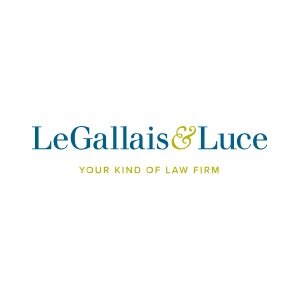Best New Business Formation Lawyers in Jersey
Share your needs with us, get contacted by law firms.
Free. Takes 2 min.
Or refine your search by selecting a city:
List of the best lawyers in Jersey
About New Business Formation Law in Jersey
New Business Formation in Jersey refers to the process of legally establishing a new business entity, such as a corporation, partnership, or limited liability company (LLC). This involves registering with the appropriate government authorities, complying with regulatory requirements, and addressing any legal issues that may arise during the formation process.
Why You May Need a Lawyer
There are several situations where you may need a lawyer for New Business Formation in Jersey, including:
- Guidance on choosing the right business structure
- Assistance with drafting and reviewing legal documents
- Compliance with local laws and regulations
- Resolving disputes with partners or shareholders
- Protecting intellectual property rights
Local Laws Overview
Key aspects of local laws relevant to New Business Formation in Jersey include:
- Business registration requirements with the Jersey Financial Services Commission
- Taxation obligations for businesses operating in Jersey
- Employment laws and regulations governing hiring practices
- Intellectual property laws for protecting business assets
Frequently Asked Questions
1. What is the most common type of business structure in Jersey?
The most common type of business structure in Jersey is the exempt company, which offers tax advantages for businesses operating internationally.
2. How long does it take to register a new business in Jersey?
The registration process for a new business in Jersey typically takes a few weeks to complete, depending on the complexity of the business structure.
3. Do I need a local address to register a business in Jersey?
Yes, businesses registered in Jersey are required to have a local registered office address for official correspondence.
4. What are the tax implications for new businesses in Jersey?
New businesses in Jersey may benefit from tax incentives and exemptions, depending on the type of business activity and structure.
5. Can I operate a business in Jersey as a sole trader?
Yes, individuals can operate as sole traders in Jersey without the need to establish a separate legal entity.
6. Are there any restrictions on foreign ownership of businesses in Jersey?
There are no restrictions on foreign ownership of businesses in Jersey, making it an attractive jurisdiction for international investors.
7. What are the key employment laws that new businesses need to be aware of in Jersey?
New businesses in Jersey must comply with employment laws related to minimum wage, working hours, and health and safety regulations for employees.
8. How can I protect my business's intellectual property in Jersey?
Businesses in Jersey can protect their intellectual property rights through trademark registration, copyright protection, and confidentiality agreements.
9. What are the main reasons for business disputes in Jersey?
Common reasons for business disputes in Jersey include breaches of contract, disagreements between partners, and disputes over ownership of intellectual property.
10. How can a lawyer assist me with New Business Formation in Jersey?
A lawyer can provide legal advice on choosing the right business structure, drafting legal documents, navigating regulatory requirements, and resolving legal disputes that may arise during the formation process.
Additional Resources
For more information on New Business Formation in Jersey, you can contact the Jersey Financial Services Commission or consult with a local business advisory organization such as Jersey Business.
Next Steps
If you need legal assistance with New Business Formation in Jersey, consider consulting with a qualified lawyer who specializes in corporate law. They can help guide you through the legal process and ensure that your new business is established in compliance with local laws and regulations.
Lawzana helps you find the best lawyers and law firms in Jersey through a curated and pre-screened list of qualified legal professionals. Our platform offers rankings and detailed profiles of attorneys and law firms, allowing you to compare based on practice areas, including New Business Formation, experience, and client feedback.
Each profile includes a description of the firm's areas of practice, client reviews, team members and partners, year of establishment, spoken languages, office locations, contact information, social media presence, and any published articles or resources. Most firms on our platform speak English and are experienced in both local and international legal matters.
Get a quote from top-rated law firms in Jersey — quickly, securely, and without unnecessary hassle.
Disclaimer:
The information provided on this page is for general informational purposes only and does not constitute legal advice. While we strive to ensure the accuracy and relevance of the content, legal information may change over time, and interpretations of the law can vary. You should always consult with a qualified legal professional for advice specific to your situation.
We disclaim all liability for actions taken or not taken based on the content of this page. If you believe any information is incorrect or outdated, please contact us, and we will review and update it where appropriate.
Browse new business formation law firms by city in Jersey
Refine your search by selecting a city.











